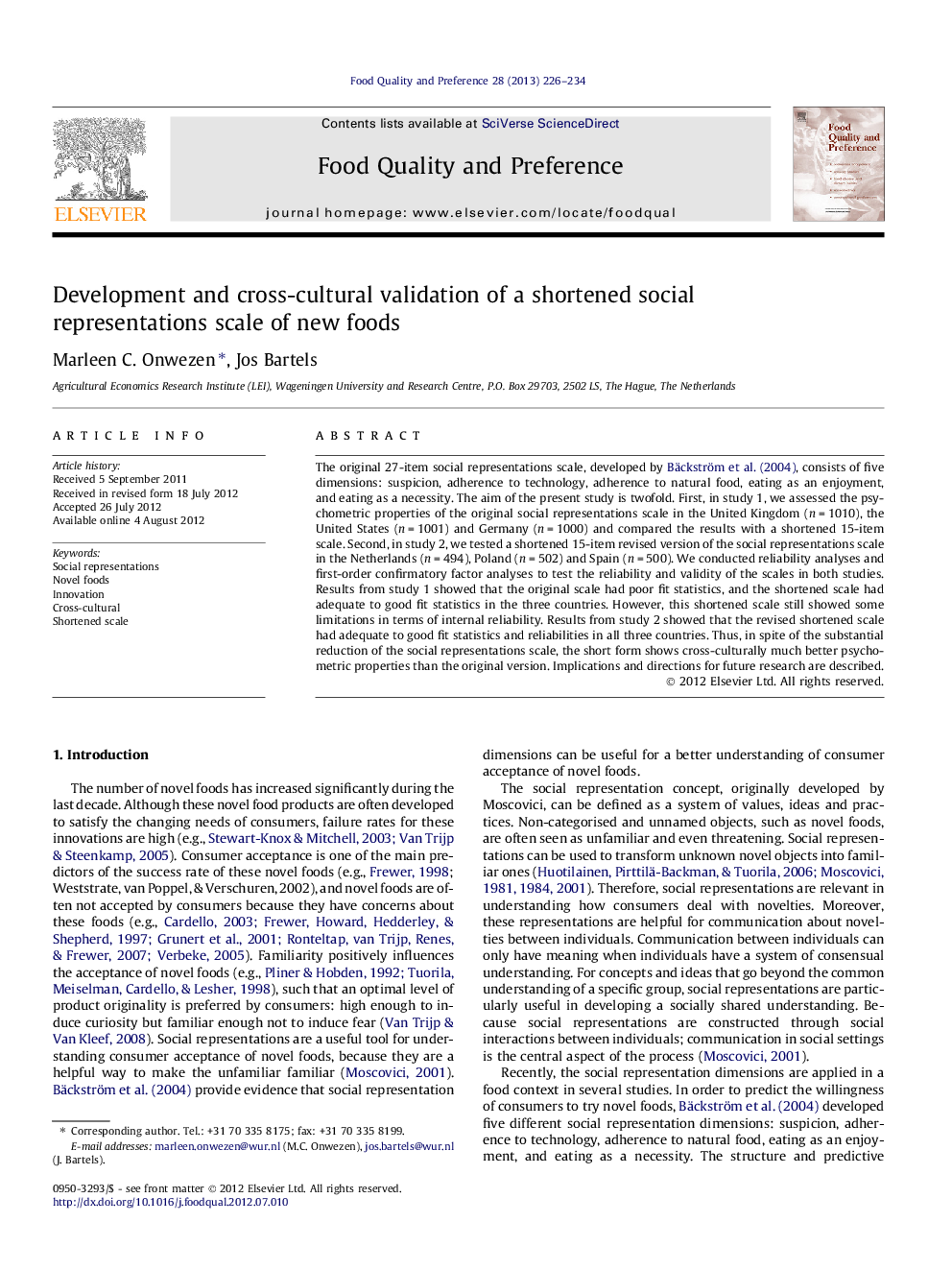| کد مقاله | کد نشریه | سال انتشار | مقاله انگلیسی | نسخه تمام متن |
|---|---|---|---|---|
| 4317374 | 1290591 | 2013 | 9 صفحه PDF | دانلود رایگان |

The original 27-item social representations scale, developed by Bäckström et al. (2004), consists of five dimensions: suspicion, adherence to technology, adherence to natural food, eating as an enjoyment, and eating as a necessity. The aim of the present study is twofold. First, in study 1, we assessed the psychometric properties of the original social representations scale in the United Kingdom (n = 1010), the United States (n = 1001) and Germany (n = 1000) and compared the results with a shortened 15-item scale. Second, in study 2, we tested a shortened 15-item revised version of the social representations scale in the Netherlands (n = 494), Poland (n = 502) and Spain (n = 500). We conducted reliability analyses and first-order confirmatory factor analyses to test the reliability and validity of the scales in both studies. Results from study 1 showed that the original scale had poor fit statistics, and the shortened scale had adequate to good fit statistics in the three countries. However, this shortened scale still showed some limitations in terms of internal reliability. Results from study 2 showed that the revised shortened scale had adequate to good fit statistics and reliabilities in all three countries. Thus, in spite of the substantial reduction of the social representations scale, the short form shows cross-culturally much better psychometric properties than the original version. Implications and directions for future research are described.
► Assessed the cross-cultural psychometric properties of the social representations scale.
► Showed that the utility of the original SR scale beyond Finland is somewhat limited.
► Developed a shortened and revised version of the SR scale.
► Showed cross-cultural reliability and validity of the shortened SR scale.
Journal: Food Quality and Preference - Volume 28, Issue 1, April 2013, Pages 226–234